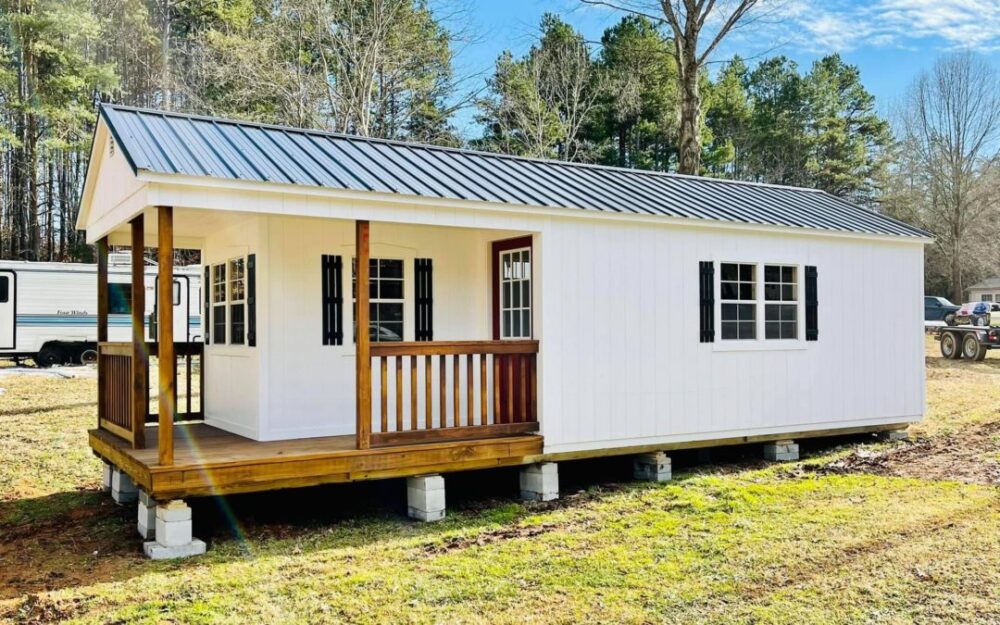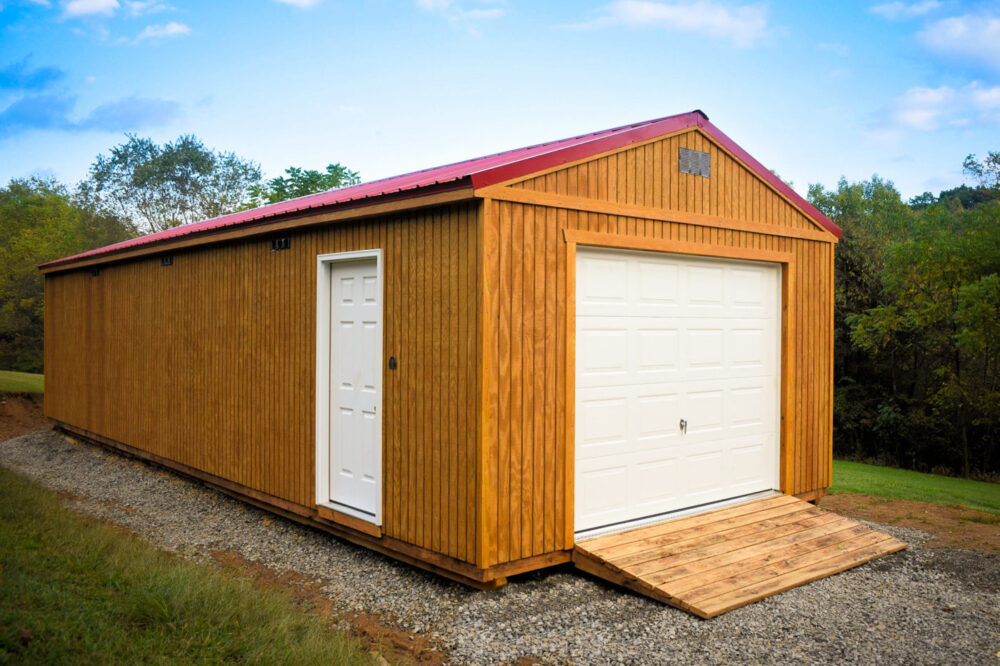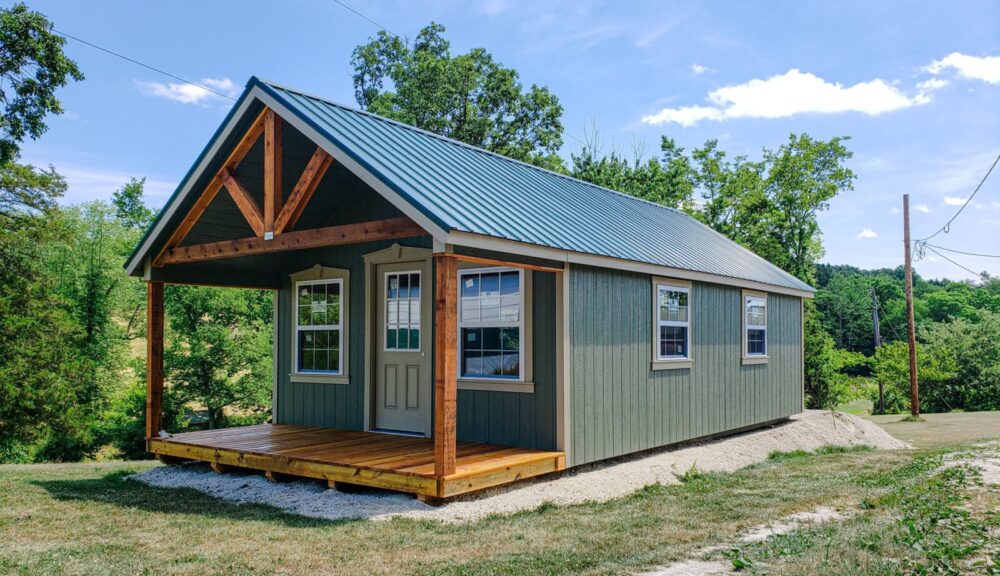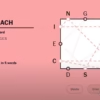If you’re searching for sheds for sale near you, it’s likely because you need a practical and efficient way to store tools, equipment, or other items. Sheds are not only functional, but they can also enhance your outdoor space and add value to your property. This article explores the various aspects of buying a shed, including types, materials, customization options, and how to find the best deals.
Why Invest in a Shed?
A shed is more than just a storage unit; it’s a versatile structure that can serve numerous purposes. Here are a few reasons why investing in a shed is a smart decision:
- Organized Storage: Keep tools, lawn equipment, and seasonal items neatly stored and easily accessible.
- Workspace Creation: Transform your shed into a workshop or hobby space.
- Increased Property Value: A well-designed shed can boost your property’s curb appeal.
- Declutter Your Home: Free up space inside your house by moving less-used items to the shed.
Types of Sheds Available Near You
When looking for sheds, you’ll notice a wide variety of options. Here are the most common types to consider:
1. Garden Sheds
Garden sheds are compact and ideal for storing gardening tools, pots, and fertilizers. They often have a classic design that complements your outdoor landscaping.

2. Storage Sheds
These are larger structures designed to hold bulkier items such as lawnmowers, bicycles, and outdoor furniture.
3. Tool Sheds
Tool sheds are tailored for storing hand and power tools. They often include shelving and hooks for organized storage.
4. Custom Sheds
For unique needs, custom sheds allow you to design a structure that perfectly fits your requirements.
5. Specialty Sheds
These include greenhouses, playhouses, or even mini-offices. Specialty sheds cater to specific hobbies or activities.
Shed Materials: What’s Best for You?
Choosing the right material is crucial for durability, maintenance, and aesthetics. Here’s a breakdown of popular shed materials:
1. Wood Sheds
- Pros: Timeless look, customizable, sturdy.
- Cons: Requires regular maintenance to prevent rot or pests.

2. Metal Sheds
- Pros: Durable, weather-resistant, low maintenance.
- Cons: Can rust if not treated and may lack aesthetic appeal.
3. Plastic or Resin Sheds
- Pros: Lightweight, easy to assemble, resistant to rot and insects.
- Cons: Limited customization options and may not be as durable for heavy use.
4. Vinyl Sheds
- Pros: Long-lasting, attractive, weatherproof.
- Cons: Generally more expensive than other materials.
Factors to Consider Before Buying a Shed
1. Size
Determine what you’ll store in the shed and measure your available space. Sheds come in sizes ranging from small (6×4 feet) to large (12×16 feet or more).
2. Location
Consider where you’ll place the shed. Ensure it’s on level ground and easily accessible.
3. Permits and Zoning
Some areas require permits for larger sheds. Check with your local authorities before making a purchase.
4. Customization
Do you need windows, insulation, or extra shelves? Decide on customization options that suit your needs.
5. Budget
Sheds can range from a few hundred to several thousand dollars. Set a budget and look for options within that range.
Where to Find Sheds for Sale Near You
When searching for sheds, it’s important to explore multiple avenues to ensure you find the best deal. Here are some tips:
1. Local Retailers
Home improvement stores like Lowe’s, Home Depot, and Menards offer a range of sheds in different sizes and materials.
2. Specialty Shed Companies
Local businesses specializing in outdoor structures often provide customizable options and better customer service.
3. Online Marketplaces
Websites like Amazon, Wayfair, and eBay offer a wide variety of sheds. Check reviews and shipping details before purchasing.
4. Classified Ads
Platforms like Craigslist and Facebook Marketplace may have affordable second-hand options.
5. Custom Builders
If you need a unique design, hire a custom shed builder. They can create a shed tailored to your exact specifications.
How to Get the Best Deal on a Shed
1. Shop Around
Compare prices from multiple retailers to ensure you’re getting the best value.
2. Look for Sales
Keep an eye out for seasonal discounts, especially during spring or fall.
3. Consider Pre-Owned Sheds
Used sheds are often much cheaper and still functional.
4. DIY Assembly
Some sheds come as kits that you can assemble yourself, saving on installation costs.
Maintaining Your Shed
Once you’ve purchased a shed, regular maintenance will keep it in good condition for years to come. Here’s how:
- Inspect Regularly: Check for leaks, cracks, or signs of wear.
- Clean Annually: Remove dirt, debris, and mildew to keep the shed looking fresh.
- Seal and Paint: Protect wooden sheds with sealant or paint to prevent rot.
- Organize Inside: Use shelves, hooks, and bins to maximize storage efficiency.
Adding Style to Your Shed
A shed doesn’t have to be an eyesore. Here are some ideas to enhance its appearance:
- Paint It: Match the shed’s color to your home or landscape.
- Add Landscaping: Plant flowers, shrubs, or decorative stones around the base.
- Install Lighting: Solar-powered lights can make your shed functional and stylish at night.
- Decorate: Add window boxes, shutters, or a weather vane for a personal touch.
Final Thoughts: Finding the Perfect Shed Near You
Buying a shed is an investment in your property’s functionality and aesthetics. By considering factors like size, material, and customization options, you can find a shed that meets your needs and budget. Explore local and online retailers to discover the best sheds for sale near you, and don’t hesitate to get creative with the design. With the right shed, you’ll not only improve your storage solutions but also enhance the overall appeal of your outdoor space.



